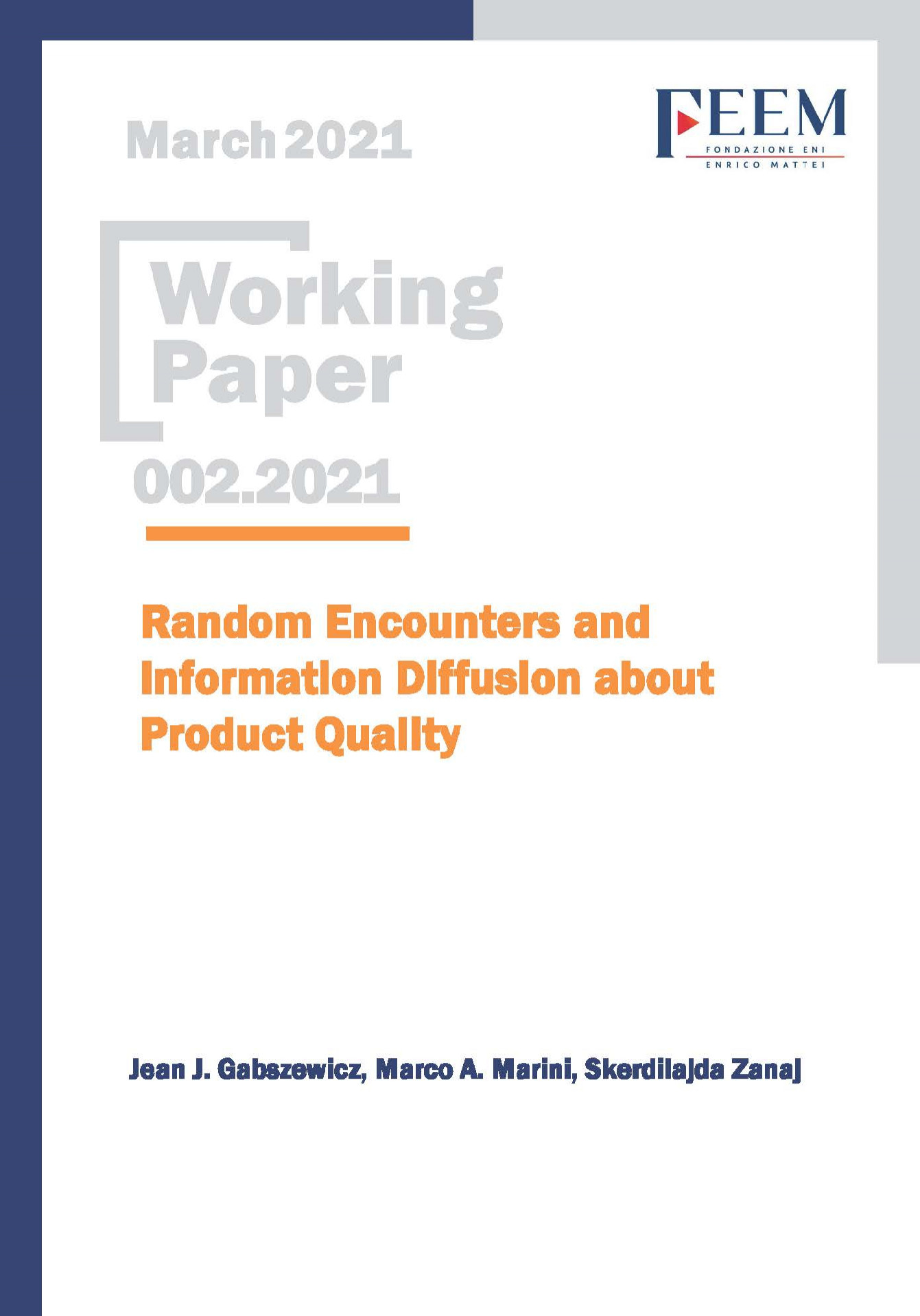Random Encounters and Information Diffusion about Product Quality

02.03.2021
Jean J. Gabszewicz (CORE – Université Catholique de Louvain); Marco A. Marini (University of Rome La Sapienza, CREI); Skerdilajda Zanaj (DEM – University of Luxembourg)
D42, D43, D83, F15, L13
Consumer Encounters, Information Diffusion, Country Size, Product Quality
This paper explores how social interactions among consumers shape markets. In a two-country model, consumers meet and exchange information about the quality of the goods. As information spreads, the demands evolve, affecting the prices and quantities manufactured by profit-maximizing firms. We show that market prices with informational frictions reach the duopoly price with full information, at the limit. However, this convergence can take two different paths depending on the size asymmetry between countries. In particular, when countries are of very different sizes, the single market does not immediately turn into a duopoly and monopoly prices may persist for several periods. Hence, the price-reducing trade effects may take longer to appear. In view of an intense globalization process, understanding how social meetings affect market outcomes is critical for understanding the performance of international economic integration.
***
Suggested citation: J. J. Gabszewicz, M. A. Marini, S. Zanaj, (2021), ‘Random Encounters and Information Diffusion about Product Quality’, Nota di Lavoro 2.2021, Milano, Italy: Fondazione Eni Enrico Mattei
